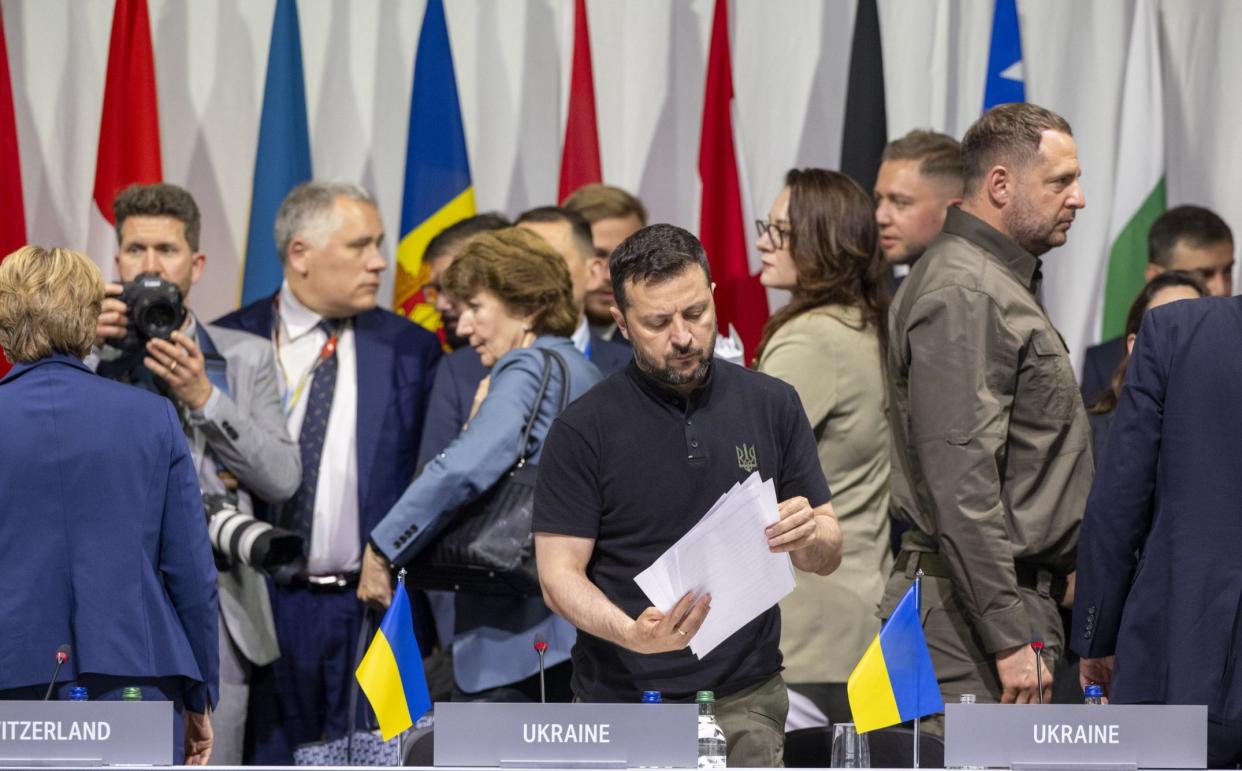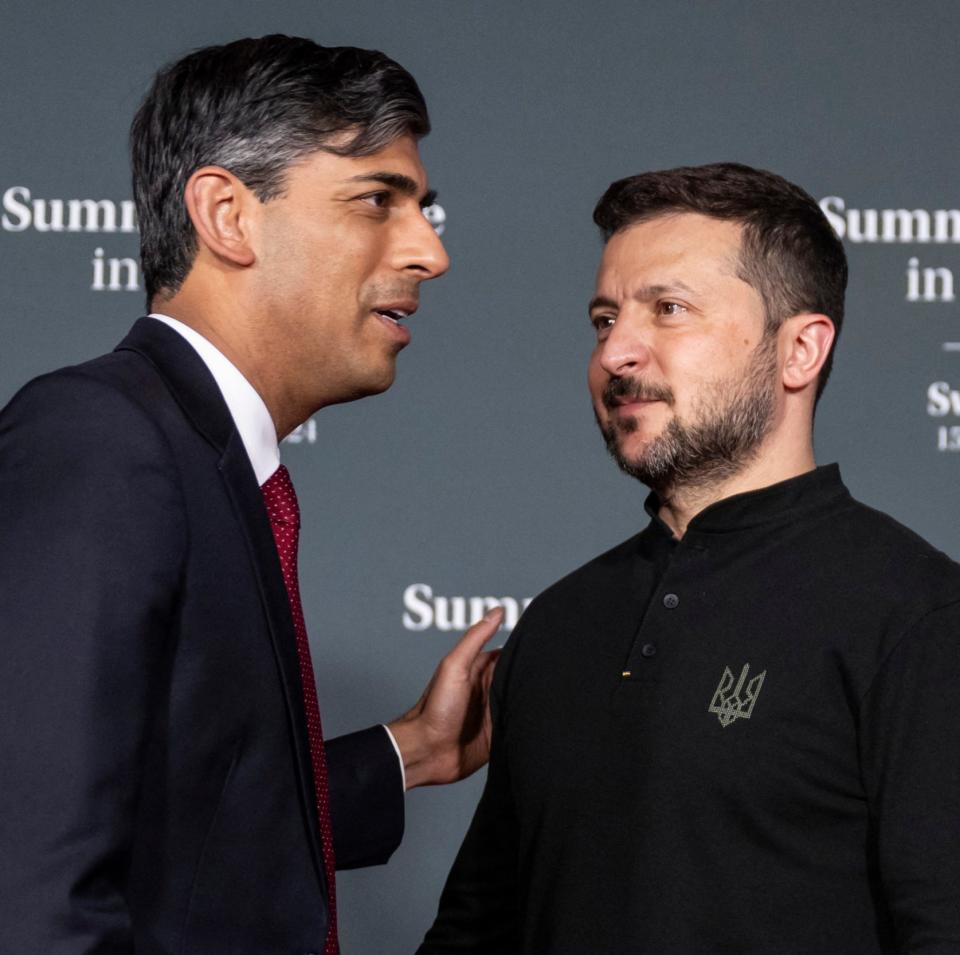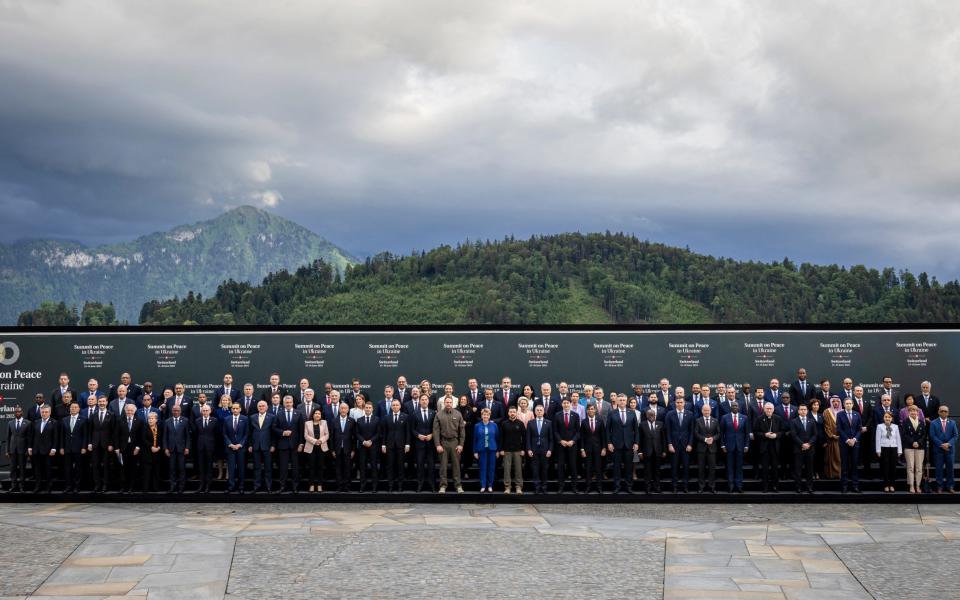Disappointing end to Ukraine summit as allies agree to watered-down peace declaration

Kyiv and its allies agreed on a watered-down declaration at a peace summit in Switzerland that backed Ukraine’s territorial integrity but failed to lay out steps to end the war.
Of the 92 national delegations at the two-day summit, only 80 signed the final declaration that Ukraine’s president Volodymyr Zelensky had hoped would act as a catalyst for peace.
Karl Nehammer, Austria’s chancellor, who did sign the declaration, explained that blaming the Kremlin for the war had been a source of contention.
He said: “It’s a question of the specific choice of words, but even those who won’t sign it have all made clear that their position is the same, that the war must end.”
Russia was not invited to the summit, which it dismissed as a “road to nowhere”, and China, its most important ally, also pulled out early.
Vladimir Putin, Russia’s president, has built support in Asia and Africa over the past two years by promising cheap grain, oil and gas, and weapons and he used this influence to lobby for a boycott of the summit and the declaration.

India, Brazil and South Africa and energy superpowers Saudi Arabia and the UAE appeared to opt for a compromise by sending junior delegations to the summit which then declined to sign the final declaration.
No countries in south Asia or south-east Asia signed up to the summit’s declaration and only a handful of African countries agreed to it.
The declaration also appeared to be a compromise. It talked about the “ongoing war of the Russian Federation against Ukraine” but then focused on side issues such as protecting civilians and securing grain corridors rather than laying down next steps for peace.
Even so, Mr Zelensky still hailed the summit as a success.
He said: “A united world is a world of peace, a world that knows how to do right. I thank everyone who worked for this day. Every leader, all the leaders’ teams and advisers, all the states.”
The president added that he would be open to peace talks “tomorrow” with Russia if it pulled its troops out of his country.

He said: “Russia can start the negotiations with us tomorrow, not waiting for anything, if they pull out from our legal territories.”
Putin said last week that he would sign a peace deal immediately if Ukraine gave up all the occupied territory.
Most Nato countries’ leaders, including Rishi Sunak, attended the summit at the Swiss resort of Bürgenstock near Lucerne although US president Joe Biden ducked out. He instead flew from a G7 meeting in Italy on Friday to Los Angeles to meet Hollywood stars for a fundraising event ahead of this year’s US presidential election.
Instead, Kamala Harris, the vice-president, attended, giving a speech in which she said: “Russia’s aggression is also an attack on international rules and norms.”
Although it fell short of shoring up a global consensus against the Kremlin and failed to lay down steps towards peace or decide on a venue for a follow-up meeting, analysts said that the Swiss summit had still been useful.
Sergey Radchenko, a professor at the School of Advanced International Studies at Johns Hopkins University in Washington DC, described it as an important “solidarity summit”.
He said: “Drumming up support for Kyiv makes a lot of sense, and in the sense that the summit contributes to European resolve to keep Ukraine well-supplied with weapons, it is a step towards peace.”

 Yahoo News
Yahoo News 
